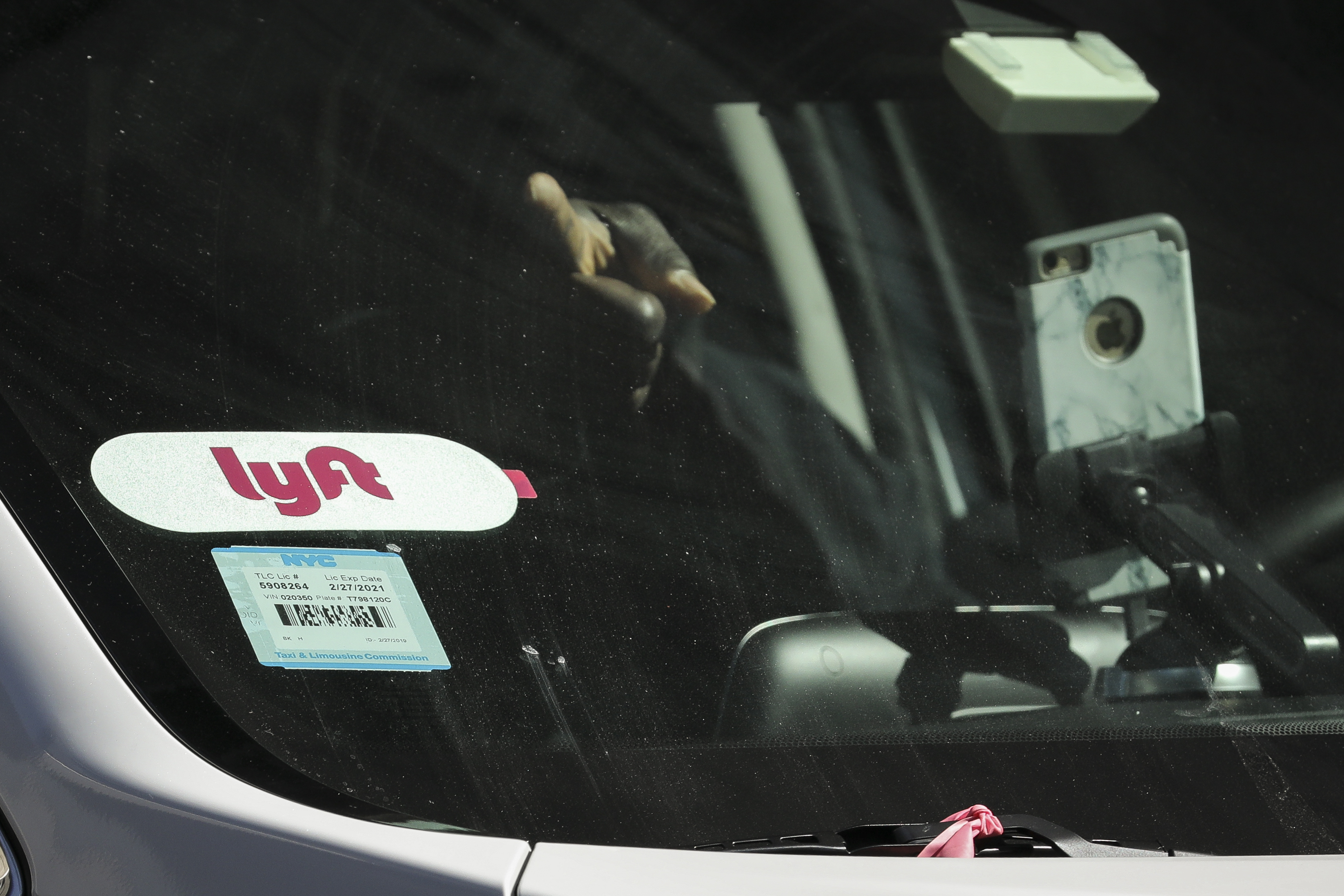What Lyft's latest deal means for the future of ride sharing

A free daily email with the biggest news stories of the day – and the best features from TheWeek.com
You are now subscribed
Your newsletter sign-up was successful
Ride share drivers won't be losing their jobs to self-driving cars anytime soon. Lyft is selling its autonomous vehicle (AV) division to Toyota subsidiary Woven Planet for $550 million, The Verge reported Monday. Experts say the move doesn't reflect Lyft giving up on self-driving vehicles entirely, but instead illustrates the company's hopes of profiting off other automakers' efforts.
The deal brings Lyft's expensive progress toward deploying its own self-driving fleet to a halt. It follows in the footsteps of rival company Uber, which last year sold its AV project to startup Aurora. The reason ride sharing apps are turning away from autonomous vehicles? First, safety challenges: a self-driving Uber car killed a pedestrian in 2018, and experts have acknowledged developing the safety technology has been more time consuming than expected. Second, money: Lyft would likely struggle to afford its planned AV armada, reports Reuters. Most notably, AV technology is not where companies thought it would be today. "Despite some technical successes, autonomous vehicles remain very far away from any kind of mass adoption," writes The Verge. Lyft previously projected that the majority of its trips would be in self-driving cars by 2021.
The Drive calls the Lyft-Toyota deal "shrewd," noting Lyft will focus on partnerships in which the automakers develop AV technology, rather than taking on that costly burden itself. And later, Lyft could reap the rewards.
The Week
Escape your echo chamber. Get the facts behind the news, plus analysis from multiple perspectives.

Sign up for The Week's Free Newsletters
From our morning news briefing to a weekly Good News Newsletter, get the best of The Week delivered directly to your inbox.
From our morning news briefing to a weekly Good News Newsletter, get the best of The Week delivered directly to your inbox.
"The big promises of automating drivers was never going to happen; it was always about stringing investors along with the next big plan," tweeted Paris Marx, host of the podcast Tech Won't Save Us. For now, ride sharing will continue to rely on human drivers — until technology catches up, they will remain crucial for services like driving during peak hours, through poor weather conditions, and in hard-to-navigate locations.
A free daily email with the biggest news stories of the day – and the best features from TheWeek.com
-
 Mixing up mixology: The year ahead in cocktail and bar trends
Mixing up mixology: The year ahead in cocktail and bar trendsthe week recommends It’s hojicha vs. matcha, plus a whole lot more
-
 Labor secretary’s husband barred amid assault probe
Labor secretary’s husband barred amid assault probeSpeed Read Shawn DeRemer, the husband of Labor Secretary Lori Chavez-DeRemer, has been accused of sexual assault
-
 Trump touts pledges at 1st Board of Peace meeting
Trump touts pledges at 1st Board of Peace meetingSpeed Read At the inaugural meeting, the president announced nine countries have agreed to pledge a combined $7 billion for a Gaza relief package
-
 TikTok secures deal to remain in US
TikTok secures deal to remain in USSpeed Read ByteDance will form a US version of the popular video-sharing platform
-
 Unemployment rate ticks up amid fall job losses
Unemployment rate ticks up amid fall job lossesSpeed Read Data released by the Commerce Department indicates ‘one of the weakest American labor markets in years’
-
 US mints final penny after 232-year run
US mints final penny after 232-year runSpeed Read Production of the one-cent coin has ended
-
 Warner Bros. explores sale amid Paramount bids
Warner Bros. explores sale amid Paramount bidsSpeed Read The media giant, home to HBO and DC Studios, has received interest from multiple buying parties
-
 Gold tops $4K per ounce, signaling financial unease
Gold tops $4K per ounce, signaling financial uneaseSpeed Read Investors are worried about President Donald Trump’s trade war
-
 Electronic Arts to go private in record $55B deal
Electronic Arts to go private in record $55B dealspeed read The video game giant is behind ‘The Sims’ and ‘Madden NFL’
-
 New York court tosses Trump's $500M fraud fine
New York court tosses Trump's $500M fraud fineSpeed Read A divided appeals court threw out a hefty penalty against President Trump for fraudulently inflating his wealth
-
 Trump said to seek government stake in Intel
Trump said to seek government stake in IntelSpeed Read The president and Intel CEO Lip-Bu Tan reportedly discussed the proposal at a recent meeting